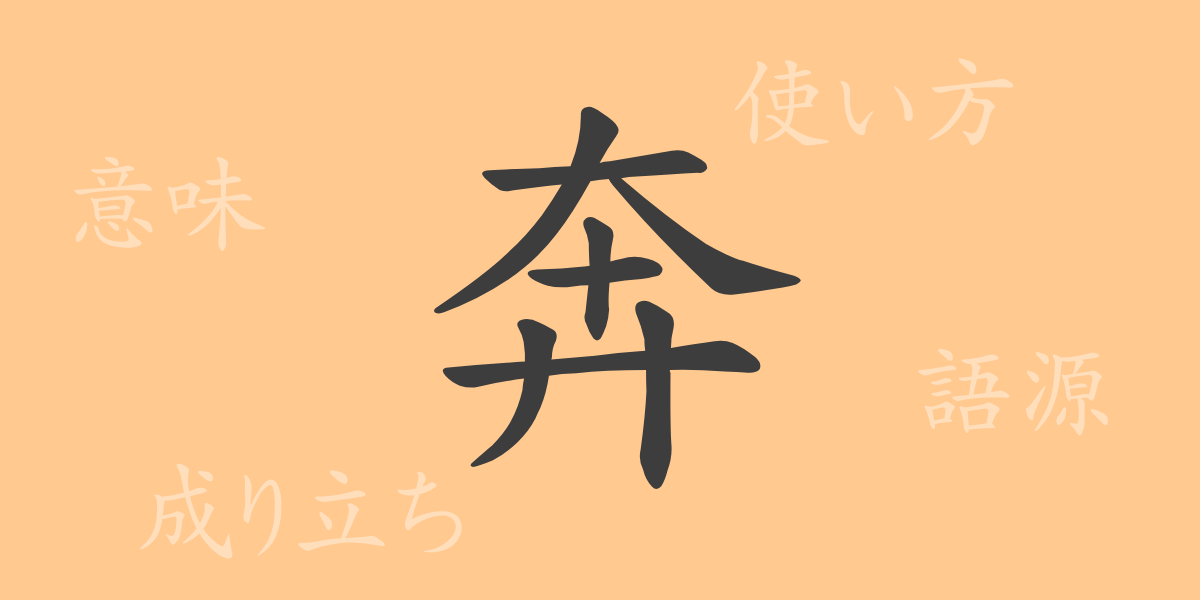The meaning embedded in a single kanji (漢字) character reflects the depth of Japanese culture and language. The common-use kanji “奔(ほん)” is one such character, and its bold strokes convey a sense of energy and movement. In this article, we will delve into the origins, meanings, usage, readings, and idiomatic expressions of “奔(ほん)” to uncover its full essence.
The Origins of 奔(ほん) (Etymology)
The kanji “奔(ほん)” can trace its origins back to ancient Chinese oracle bone script. Originally, it symbolized something moving swiftly in a straight line. Over time, its form evolved and refined into the current “奔(ほん).” This character is used in many words and expressions to denote motion and speed.
The Meaning and Usage of 奔(ほん)
“奔(ほん)” means “to run furiously” or “to advance vigorously.” This kanji is often used to describe active movements of people or things. For example, “奔走(ほんそう)する” means “to busy oneself for a purpose,” and “奔流(ほんりゅう)” describes the violent flow of a river.
Readings, Stroke Count, and Radical of 奔(ほん)
Here is some basic information about the kanji “奔(ほん)”:
- Readings: The on’yomi (音読み) reading is “ホン (hon),” and the kun’yomi (訓読み) reading is “はし(る) (hashiru).”
- Stroke Count: “奔(ほん)” has 8 strokes.
- Radical: The radical of “奔(ほん)” is “大 (dai).”
Idiomatic Expressions and Proverbs Using 奔(ほん)
Here are some idiomatic expressions and proverbs that include “奔(ほん)”:
- 奔走(ほんそう) – To busy oneself for a purpose.
- 奔放(ほんぽう) – To be free and unrestrained.
- 奔流(ほんりゅう) – The violent flow of a river.
- 情熱奔放(じょうねつほんぽう) – Overflowing with passion and acting freely.
These idiomatic expressions and proverbs strongly reflect the meanings of “motion,” “freedom,” and “vigor” inherent in “奔(ほん).”
Summary of 奔(ほん)
The kanji “奔(ほん)” is well-suited to expressing vigorous activity and movement, as suggested by its form. It frequently appears in everyday idiomatic expressions and proverbs, enriching the expressive potential of the Japanese language. We hope this article has helped you understand the energetic image and usage of “奔(ほん).”

























